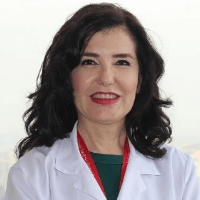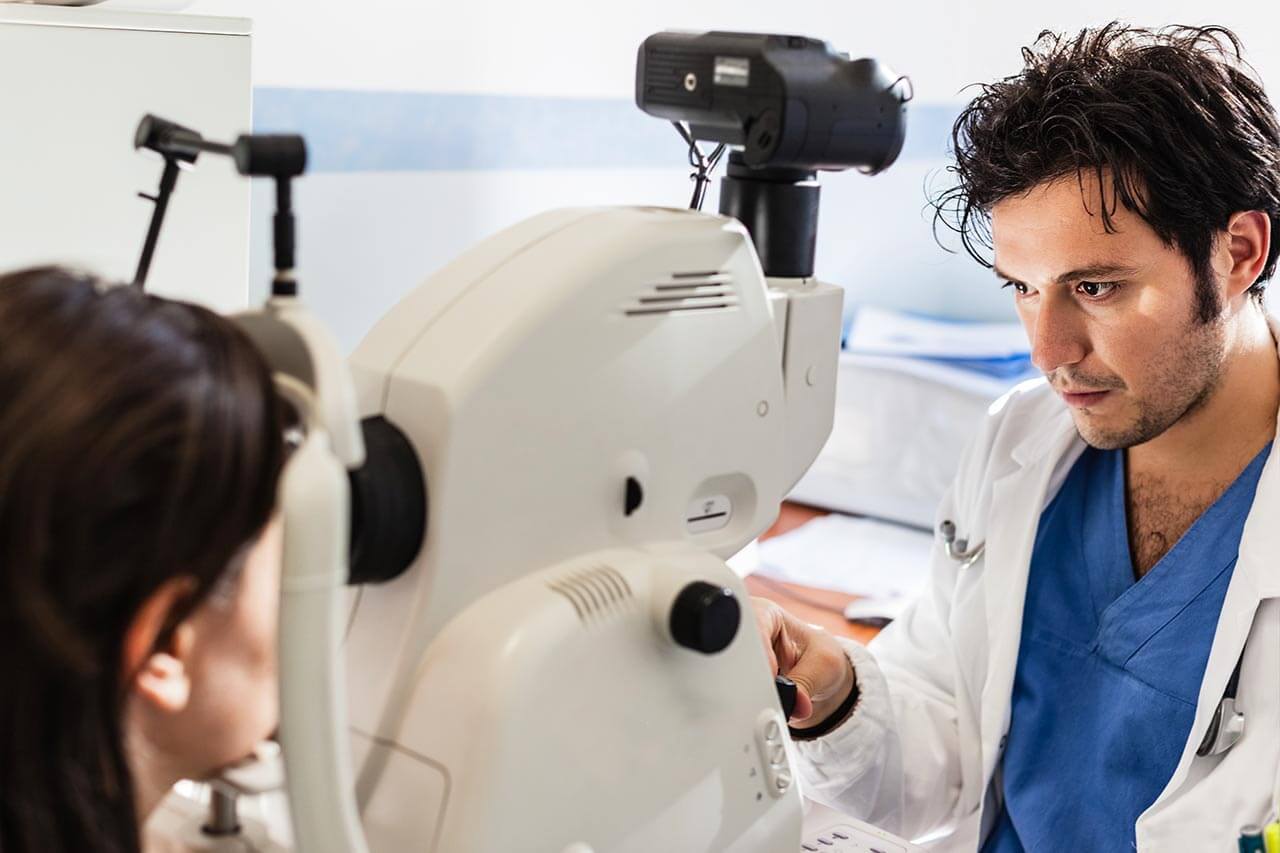
About the Department of Dermatology and Venereology at Memorial Ankara Hospital
The Department of Dermatology and Venereology at the Memorial Ankara Hospital offers the widest range of diagnostic tests and treatment methods for all diseases of the skin, hair, nails and mucous membranes. The department's specialists also provide qualified medical care to patients with sexually transmitted diseases. In addition, the department offers a variety of modern cosmetic procedures, which help improve skin condition and effectively eliminate age-related changes. The department's medical team mostly provides conservative treatment, for example, drug therapy, photodynamic therapy, laser procedures, but they can also perform minor surgical interventions on the skin whenever required. The department's specialists use only reliable and the most effective treatment methods for the restoration of the health and beauty of the skin. The department's dermatologists strictly follow the current clinical protocols and carefully think over the treatment regimen for each patient, taking into account his individual needs and wishes. The Chief Physician of the department is Prof. Dr. med. Nilgun Solak.
The department's medical team pays close attention to the high-quality and accurate diagnostics, which is the key to selecting the most effective treatment methods. During the initial consultation, it is important for the doctor to talk with the patient, hear his complaints, as well as conduct a clinical examination and study the patient's medical history. Then comes the stage of laboratory and instrumental diagnostics. The laboratory tests often include a complete blood count, scrapes for histochemical and histological diagnostics, allergy tests, immunological tests, etc. If laboratory tests do not allow a dermatologist to establish an accurate diagnosis, he resorts to instrumental methods, such as dermatoscopy, fluorescent diagnostics, ultrasound, CT, MRI, etc. Thanks to the advanced medical equipment, the department's doctors can conduct dermatological diagnostics as soon as possible, as well as with maximum comfort for the patient. The doctors working in the department have excellent qualifications and extensive experience in detecting the slightest pathological changes in the skin and their causes. Since skin diseases are often not independent pathologies, but manifestations of more serious health problems, the department's medical team interacts with specialists from other medical disciplines, in particular, neurologists, allergists, gastroenterologists, endocrinologists and others.
Depending on the severity of the disease and the rate of its progression, the therapy can take place both in a hospital and on an outpatient basis. In most cases, the first line therapy is drug treatment, for which the department's doctors use various vitamin complexes, immunomodulators, antiparasitic and antiviral drugs, antibiotics and other drugs. However, the department's specialists use not only medicines. The doctors have in their arsenal many modern types of therapy, including phototherapy, cryodestruction, electrocauterization, PUVA therapy, laser therapy, stem cell therapy and other methods that allow the patient to effectively get rid of the clinical manifestations of skin disease, as well as improve the aesthetic appearance of the skin.
One of the most common skin diseases in the department's clinical practice is psoriasis. Psoriasis is a chronic skin condition characterized by the formation of red spots and scales on the skin that constantly flake off. The pathology still remains incurable, so the task of the doctors is to eliminate the symptoms and achieve long-term remission. For this purpose, they use the whole range of therapeutic measures, including drug treatment with tablets and ointments for external use, phototherapy, PUVA therapy and laser treatment. In addition, the patient must follow a strict diet, refrain from large amounts of fats, carbohydrates, salty, spicy foods and alcohol. The department's dermatologists have a wealth of experience in the treatment of psoriasis, so they can easily elaborate effective treatment regimens, taking into account the specific clinical situation of the patient.
The department's specialists also often admit patients suffering from various types of dermatitis. The treatment of contact and atopic dermatitis, as well as eczema is of particular interest to the department's medical team. To combat pathology and eliminate its painful manifestations, such as redness of the skin accompanied by itching, rashes and swelling, the doctors use various drugs of the latest generations, including ointments and creams, as well as phototherapy and laser procedures. In addition, in the case of exacerbation of dermatitis, dieting is required. The correct diet is developed for each patient individually, taking into account the characteristics of the course of the disease and individual clinical indicators.
The department's service range is complemented by various cosmetic procedures to improve skin health and combat age-related manifestations on the skin. The doctors mostly perform Botox and filler injections to treat wrinkles and form beautiful facial contours, various types of chemical peels, HydraFacial cosmetic procedure for skin cleansing, exfoliating and deeply moisturizing, laser removal of unwanted body hair, as well as treatment of varicose veins and correction of capillary cracks. In addition, the dermatologists perform Botox injections to treat hyperhidrosis (excessive sweating) in the hands, armpits and feet.
The department's range of medical services includes:
- Diagnostics and treatment of psoriasis
- Diagnostics and treatment of various types of dermatitis
- Diagnosis and treatment of vitiligo
- Diagnosis and treatment of eczema
- Diagnosis and treatment of acne
- Diagnostics and treatment of fungal, parasitic and viral skin lesions
- Diagnostics and treatment of benign skin neoplasms (for example, warts, papillomas, nevi, birthmarks, lipomas, angiomas)
- Diagnostics and treatment of malignant skin neoplasms
- Diagnostics and treatment of skin pigmentation disorders
- Diagnostics and treatment of pathological lesions of nails and hair
- Diagnostics and treatment of other skin diseases
The department's therapeutic options include:
- Drug treatment with tablets, ointments and creams
- Phototherapy
- Cryodestruction
- Laser therapy
- Electrocauterization
- Immunotherapy
- PUVA therapy
- Cosmetic treatments to improve skin health and combat age-related skin changes
- Botox injections
- Filler injections
- Chemical peels
- Laser removal of unwanted body hair
- HydraFacial for skin rejuvenation, cleansing and moisturizing
- Treatment of varicose veins
- Correction of capillary cracks
- Botox injections for the treatment of hyperhidrosis in the hands, armpits and feet
- Minor surgery (for example, ingrown toenail removal)
- Other treatment methods
Curriculum vitae
Professional Career
- Since 2018 Head of the Department of Dermatology and Venereology at the Memorial Ankara Hospital, Ankara, Turkey.
- 2017 - 2018 Dermatologist at the hospital of the private university in Ankara, Ankara, Turkey.
- 2001 - 2017 Lecturer at the Faculty of Medicine, Zonguldak Bulent Ecevit University, Turkey.
- 1996 - 2000 Dermatologist at the hospital of the Gazi University, Ankara, Turkey.
- 1994 - 1996 General Practitioner at the hospital in Afyon, Turkey.
- 1991 - 1994 General Practitioner, Afyon İhsaniye Sağlık Ocağı Hospital, Afyon, Turkey.
Higher Education and Postgraduate Training
- 2001 - 2017 Professorship and Assistant Professorship, Faculty of Medicine, Zonguldak Bülent Ecevit University, Turkey.
- 1985 - 1991 Study of Human Medicine at the Faculty of Medicine at the Mediterranean University, Antalya, Turkey.
Memberships in Professional Societies
- Ankara Medical Association.
- Turkish Society of Dermatology.
- Turkish Society of Venereology.
- Turkish Society of Pediatric Dermatology.
- European Academy of Dermatology and Venereology.
- "Euromelanoma" Pan-European campaign.
Photo of the doctor: (c) Memorial Ankara Hospital




